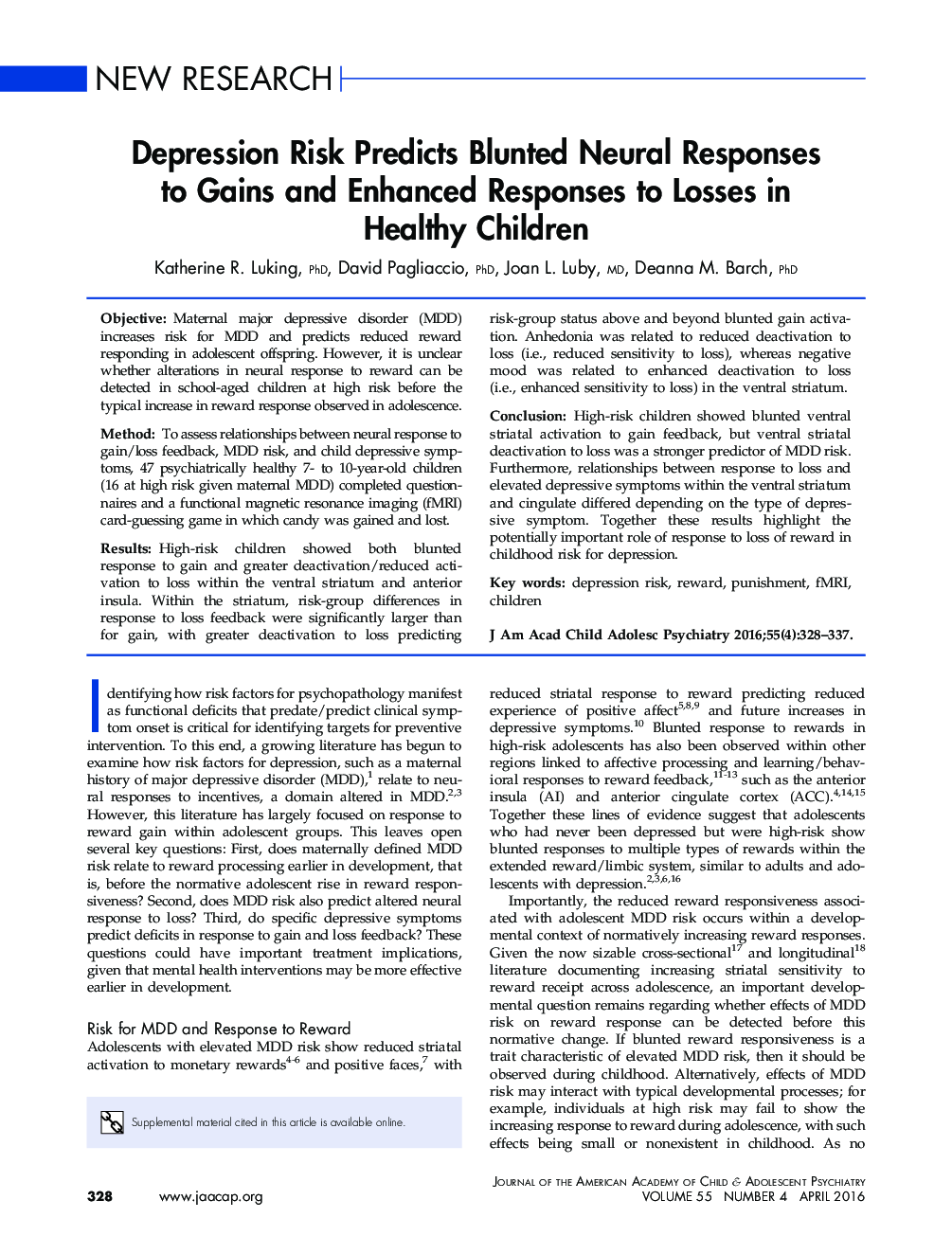| Article ID | Journal | Published Year | Pages | File Type |
|---|---|---|---|---|
| 324481 | Journal of the American Academy of Child & Adolescent Psychiatry | 2016 | 10 Pages |
ObjectiveMaternal major depressive disorder (MDD) increases risk for MDD and predicts reduced reward responding in adolescent offspring. However, it is unclear whether alterations in neural response to reward can be detected in school-aged children at high risk before the typical increase in reward response observed in adolescence.MethodTo assess relationships between neural response to gain/loss feedback, MDD risk, and child depressive symptoms, 47 psychiatrically healthy 7- to 10-year-old children (16 at high risk given maternal MDD) completed questionnaires and a functional magnetic resonance imaging (fMRI) card-guessing game in which candy was gained and lost.ResultsHigh-risk children showed both blunted response to gain and greater deactivation/reduced activation to loss within the ventral striatum and anterior insula. Within the striatum, risk-group differences in response to loss feedback were significantly larger than for gain, with greater deactivation to loss predicting risk-group status above and beyond blunted gain activation. Anhedonia was related to reduced deactivation to loss (i.e., reduced sensitivity to loss), whereas negative mood was related to enhanced deactivation to loss (i.e., enhanced sensitivity to loss) in the ventral striatum.ConclusionHigh-risk children showed blunted ventral striatal activation to gain feedback, but ventral striatal deactivation to loss was a stronger predictor of MDD risk. Furthermore, relationships between response to loss and elevated depressive symptoms within the ventral striatum and cingulate differed depending on the type of depressive symptom. Together these results highlight the potentially important role of response to loss of reward in childhood risk for depression.
